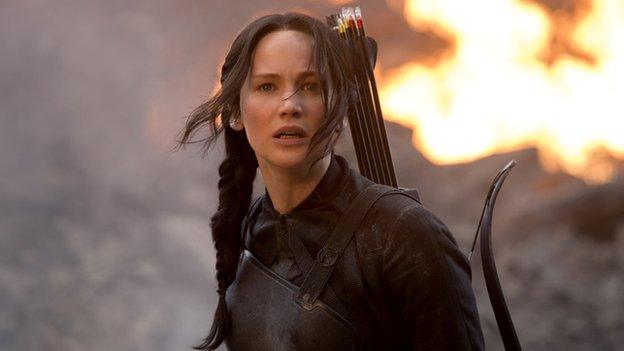Hunger Games prequel will reveal villain's origins
- Published
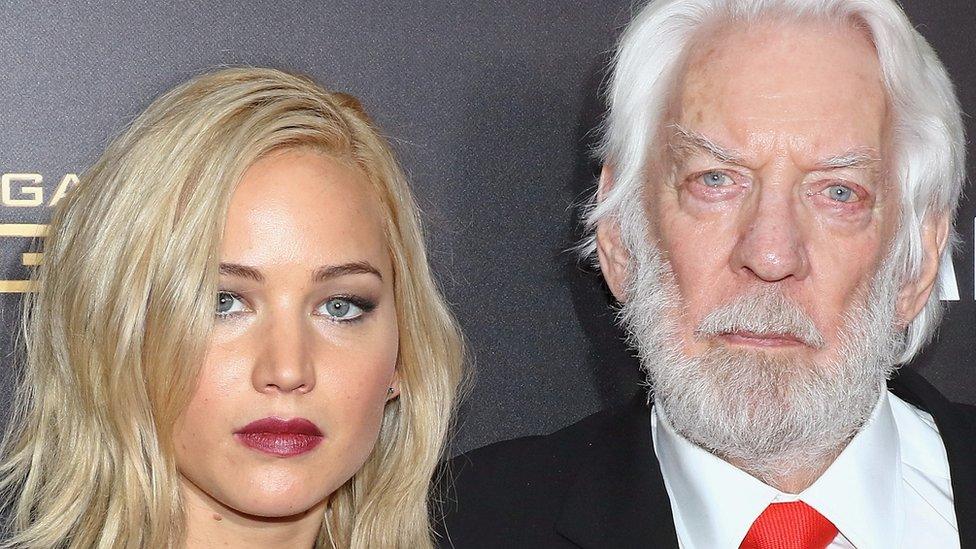
Jennifer Lawrence starred alongside Donald Sutherland in the Hunger Games films
A new Hunger Games novel is to be published in May, focusing on the back story of the villainous President Snow.
Suzanne Collins's book series is a saga of rebellion and resistance in Panem, a dystopian version of America.
The US author's original trilogy became a successful film franchise, starring Jennifer Lawrence as heroine Katniss.
The prequel, The Ballad of Songbirds and Snakes, will revolve around the young Snow, who was played on screen as an older man by Donald Sutherland.
The new book is set 64 years before the events of The Hunger Games and details the "Dark Days" that led to the failed rebellion in Panem.
A first excerpt, available on the Entertainment Weekly website, external, depicts Coriolanus Snow as a charming university student who was born into privilege.
"The world still thought Coriolanus rich, but his only real currency was charm, which he spread liberally as he made his way through the crowd," it reads.
"Faces lit up as he gave friendly hellos to students and teachers alike, asking about family members, dropping compliments here and there."
The Hunger Games' official social media channels have introduced Snow, who later becomes a brutal tyrant, as "your new hero".
Allow X content?
This article contains content provided by X. We ask for your permission before anything is loaded, as they may be using cookies and other technologies. You may want to read X’s cookie policy, external and privacy policy, external before accepting. To view this content choose ‘accept and continue’.

Some fans are not pleased by the news, feeling it unnecessary to "humanise" an ultimately murderous character.
"In the times we live in now, no one needs a prequel about a 'misunderstood' President Snow," wrote one Twitter user.
"We have to stop this trend of humanising those who dehumanise everyone else around them."
Yet others appear more sanguine about the idea, describing it as "interesting".
"There are no good or bad guys in stories," wrote another Twitter user. "It's purely up to one's perception and the viewpoint from which the story is told."
The fictional Hunger Games has become a symbol of the fight for freedom over oppression for many people around the world.
Earlier this month protestors against the military-backed government in Thailand gave a three-finger salute - a gesture that featured in the series to convey unity amid struggle.
Collins is not the first author to be tempted to extend the legacy of a successful story.
In 2008, JK Rowling sold an 800-word Harry Potter short story, purporting to be an unofficial prequel, at a charity auction.
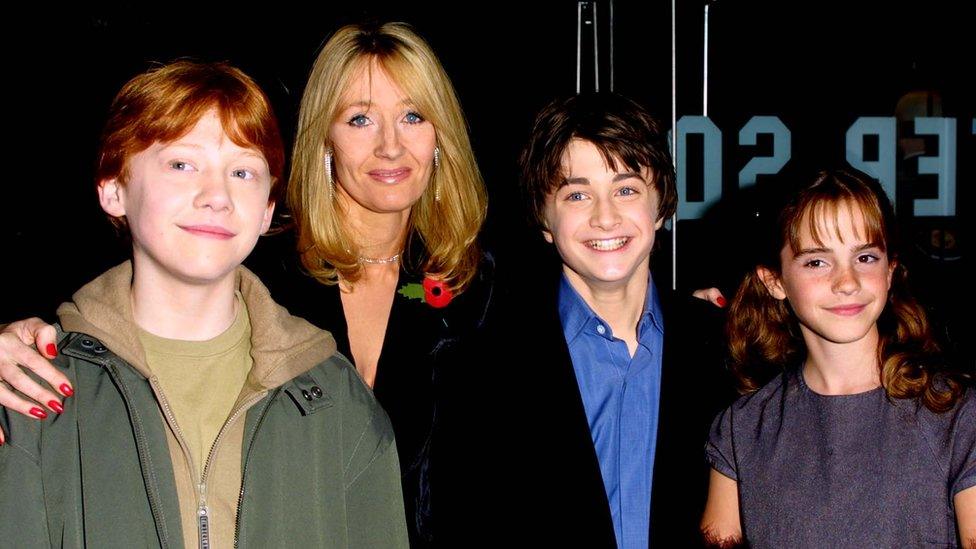
Rupert Grint, Daniel Radcliffe and Emma Watson with writer JK Rowling in 2001
The story, which fetched £25,000, recalled how Sirius Black and Harry's father James were involved in a motorbike chase with the Muggle Police.
The manuscript, which was stolen in 2017, ended with the words: "From the prequel I am not working on - but that was fun!"
Rowling has, though, taken everybody's favourite student wizard from the page to the stage for a sequel of sorts.
The two-part play Harry Potter and the Cursed Child begins 19 years after the events of Rowling's 2007 novel Harry Potter and the Deathly Hallows.
After premiering on the West End in 2016, the play - written by Jack Thorne - won a record-breaking nine Olivier Awards, and the script has sold 1.8 million copies in the UK.
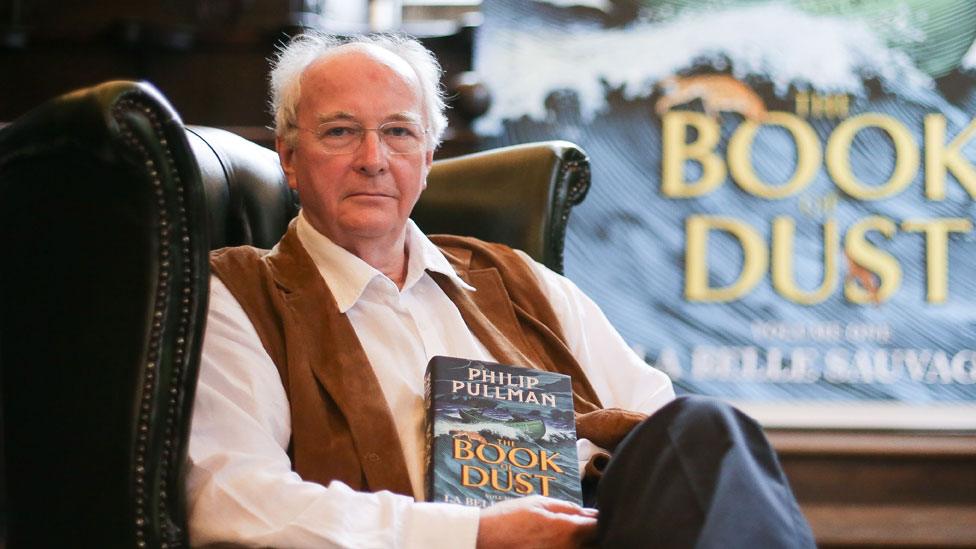
Philip Pullman poses with a copy of La Belle Sauvage: The Book of Dust Volume One in 2017
Philip Pullman recently penned a prequel trilogy to His Dark Materials. The series - which follows children Lyra Belacqua and Will Parry on their mystical journey through a series of parallel universes - returned after 17 years in 2017.
La Belle Sauvage: The Book of Dust, the first in the new series of books, is set 12 years before the first offering, Northern Lights, and sees the infant Lyra arrive into the care of nuns.
Pullman's popular epic was adapted for the stage by Nicholas Wright in 2003 and then again by Jack Thorne for BBC TV in 2019, starring Dafne Keen as Lyra.

Follow us on Facebook, external, or on Twitter @BBCNewsEnts, external. If you have a story suggestion email entertainment.news@bbc.co.uk, external.
- Published17 June 2019
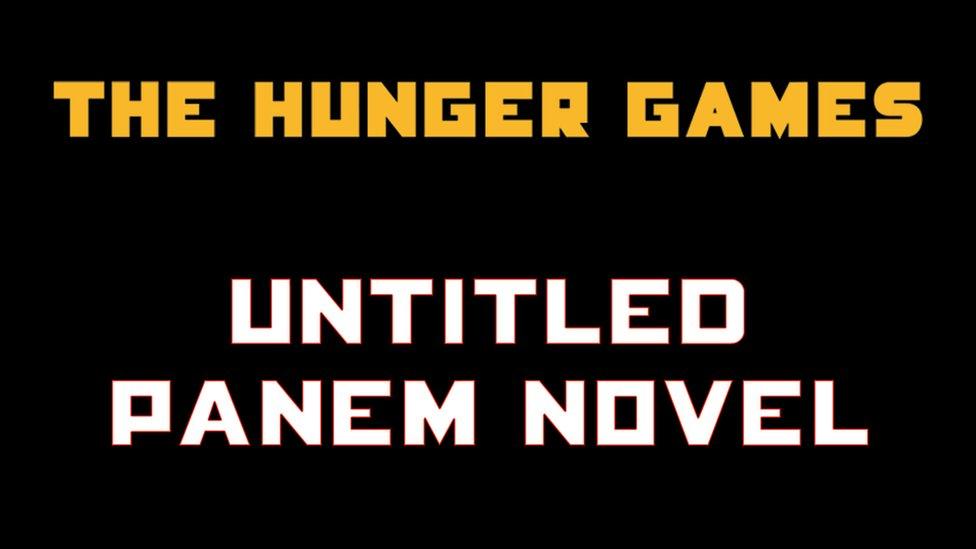
- Published7 November 2014
